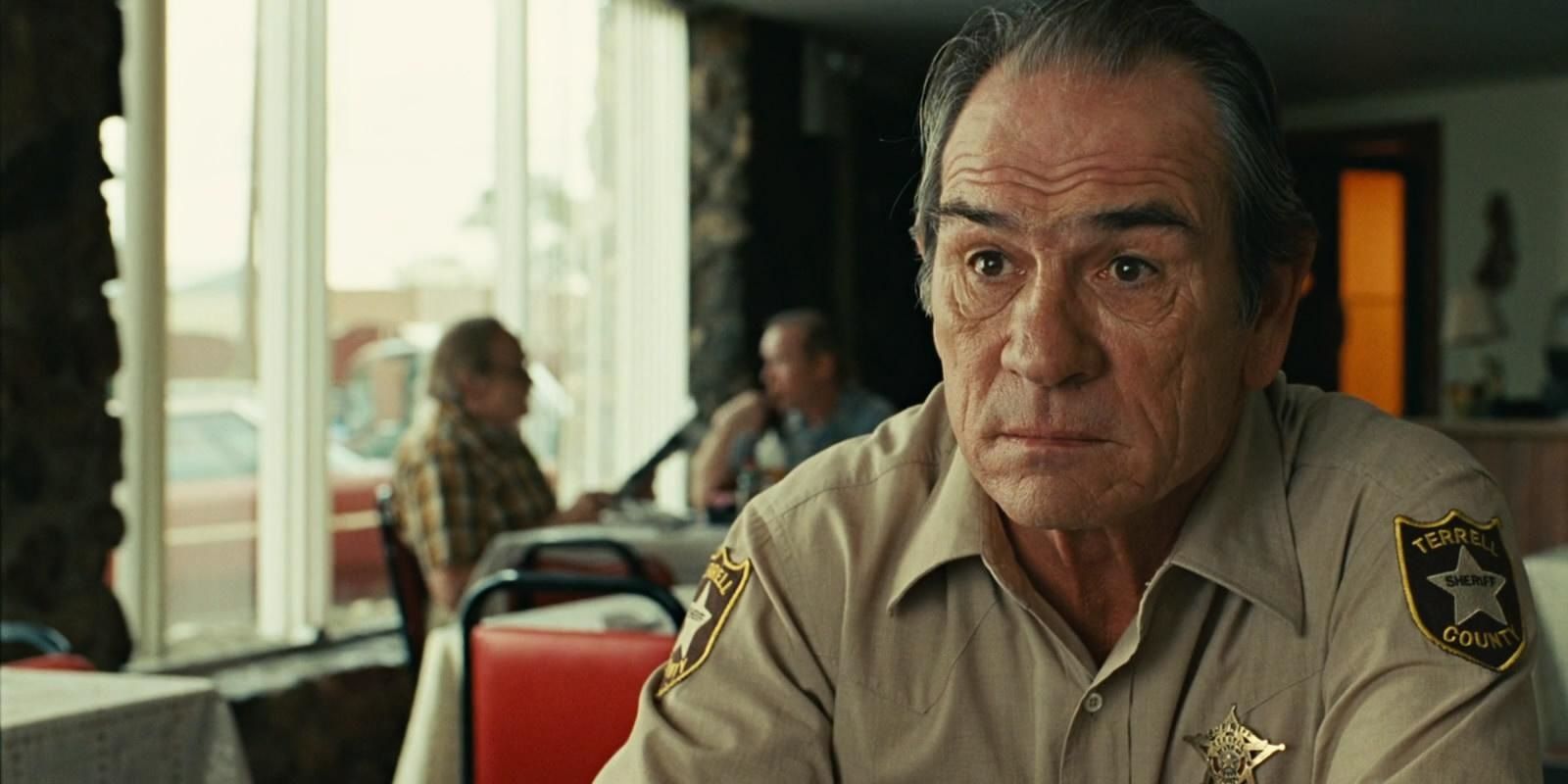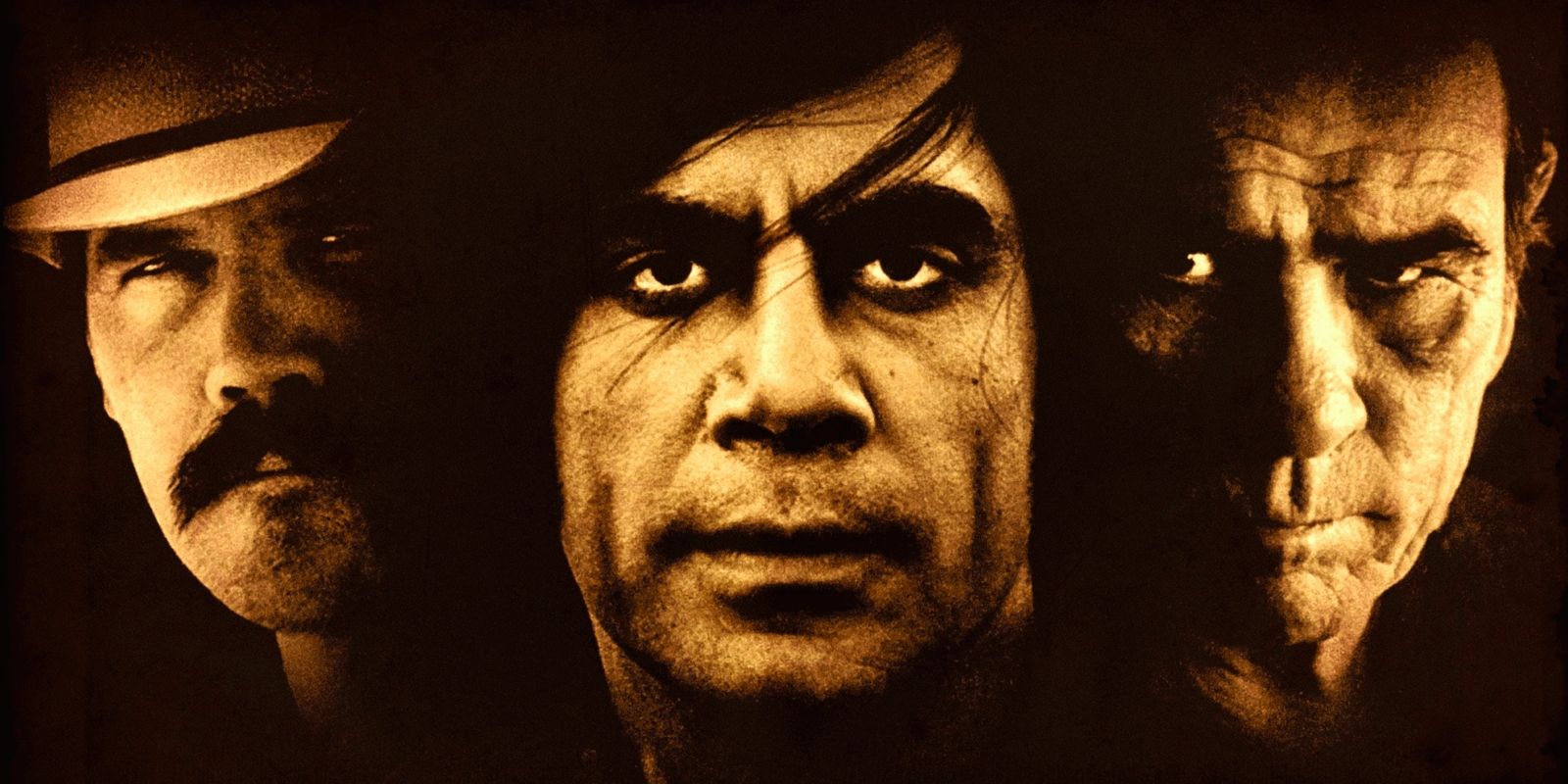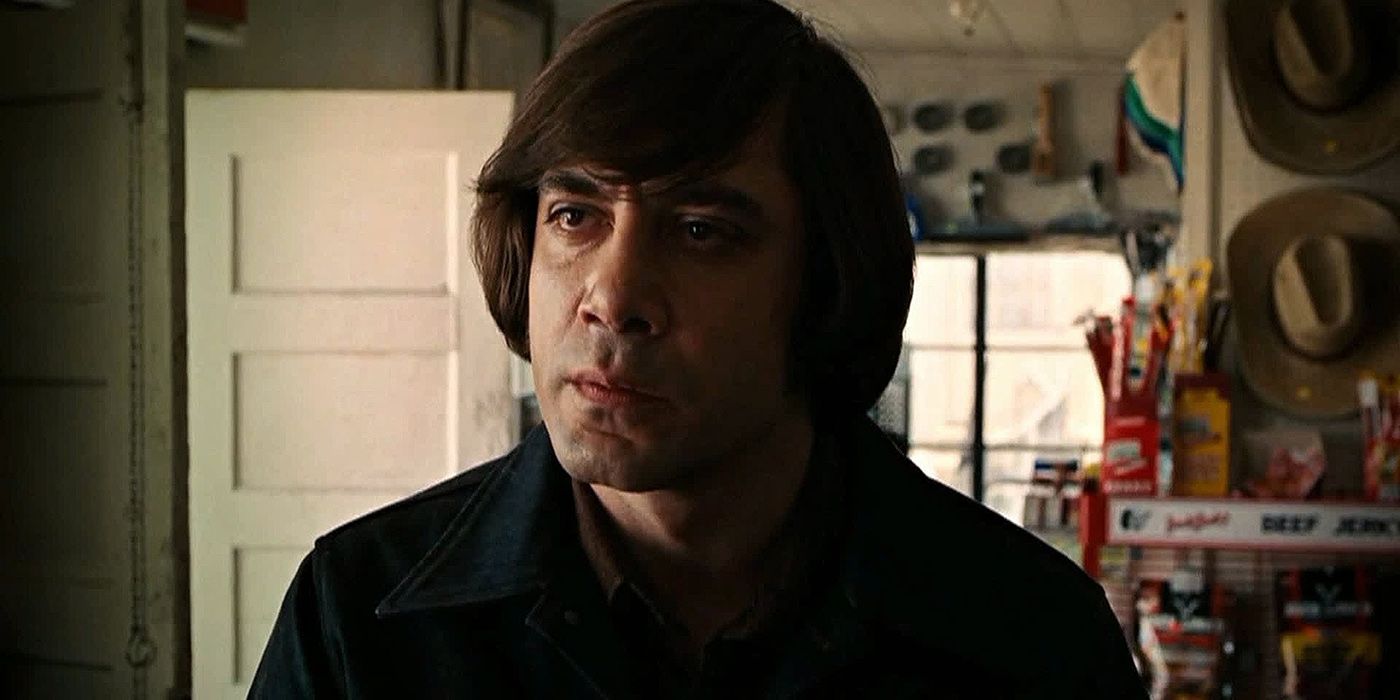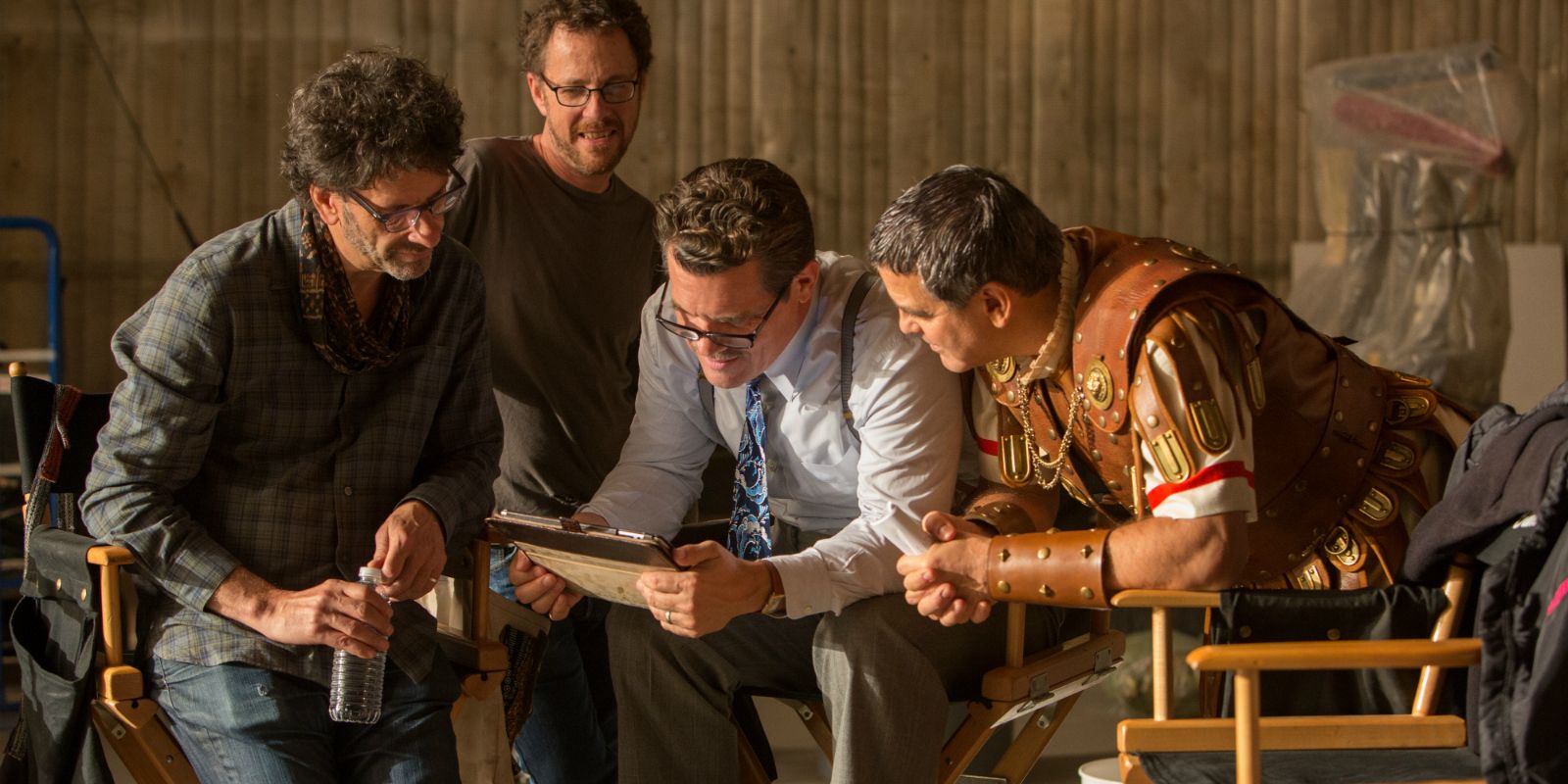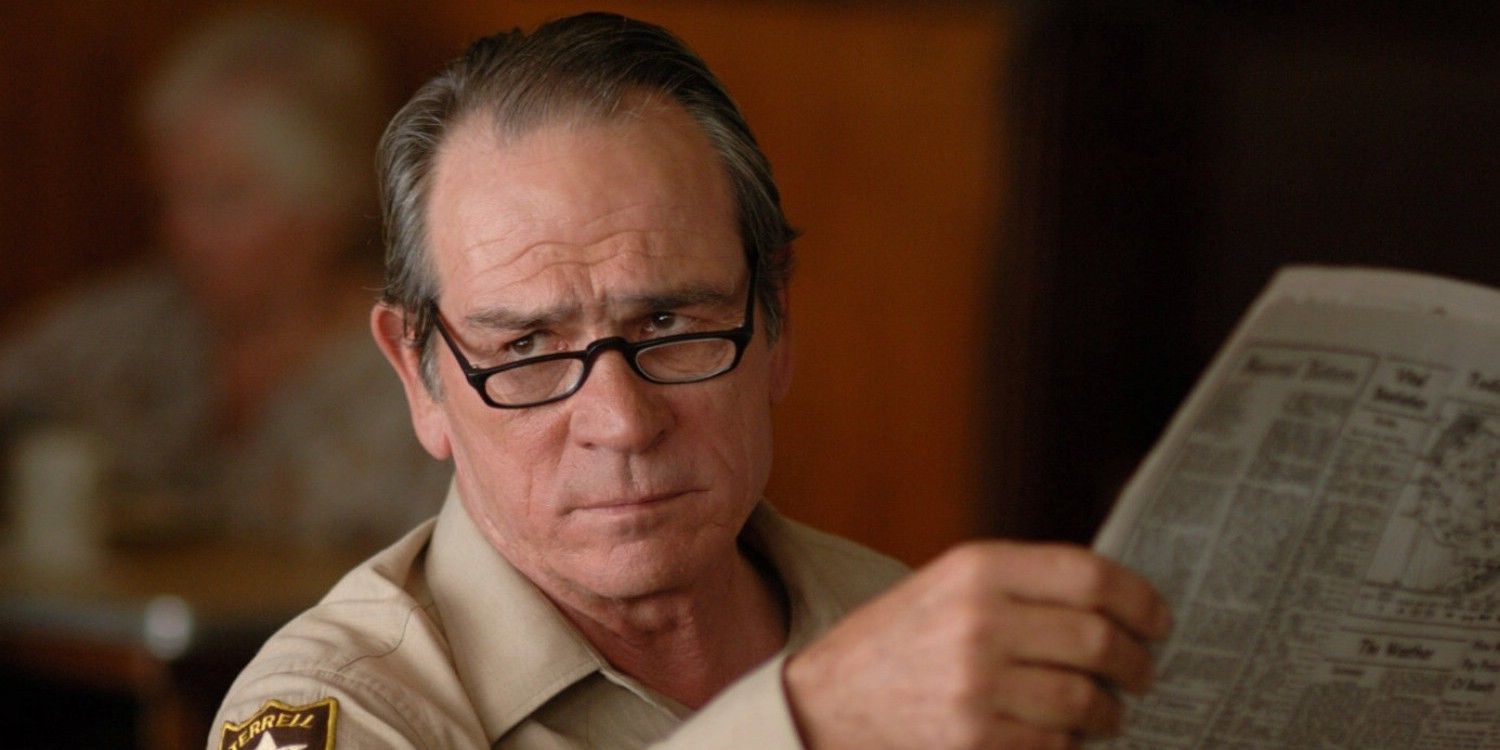Summary
- No Country For Old Men ending divided audiences, opting for ambiguity over a traditional hero-villain showdown.
- Sheriff Bell’s dreams symbolize guilt and loss of innocence, key to understanding the ending’s deeper meaning.
- Coen Brothers’ intentional anti-Hollywood direction in No Country For Old Men offers a poetic summation of its themes.
No Country For Old Men is commonly regarded as a modern classic, yet the No Country for Old Men ending proved to be divisive due to its final scene. No Country For Old Men is a highly faithful adaptation of author Cormac McCarthy’s novel, which follows a man named Llewelyn Moss who steals a bag of drug money before finding himself pursued by the seemingly ethereal hitman Anton Chigurh. The story also involves the jaded Sheriff Bell, who hopes to save Moss and stop the trail of destruction Chigurh leaves in his bloodthirsty wake.
Much like No Country for Old Men‘s source material, the Coen Brothers movie feels like a genre piece only for much deeper themes and meanings to come out in its conclusion. The No Country For Old Men ending also upset audiences upon release, with many expecting a more traditional showdown between hero and villain. The finale’s ambiguity is still hotly debated over a decade later but a deeper analysis of the movie is key to understanding the nuance of the No Country for Old Men ending.
Related
The 60 Best Movies Of All Time
Screen Rant breaks down the best movies of all time, from old classics to modern masterpieces across multiple genres of cinema.
How No Country For Old Men Ends
Shocking Deaths And Philosophical Musings Wrap Up The Coen Brothers Movie
Much of the movie’s action and thrills are from following Moss (Josh Brolin) as he tries to stay one step ahead of Chigurh (Javier Bardem). However, No Country for Old Men delivers a shocking end for Moss as the character is killed offscreen by assassins.
Chigurh later recovers the money Moss stole and, true to his earlier threat, comes to kill Moss’ wife, Carla Jean. Throughout the movie, Chigurh occasionally leaves the fate of potential victims up to a coin toss, believing faith will decide their survival. Carla Jean refuses to bet on Chigurh’s offer, placing the responsibility for the decision back on him, and it is implied that he kills her.
Bardem’s iconic hitman is involved in a traffic accident soon after he leaves Carla Jean’s house, but despite his injuries, he ends up walking away from the carnage he has wrought. In a self-induced exile, the movie then cuts to Sheriff Bell (Tommy Lee Jones) following his failure to save Moss or recover the drug money. During this scene, Bell recounts two dreams he had the night before.
The first involves meeting his father, who entrusts him with some cash, but Bell agonizingly thinks he has lost it. The second dream features father and son riding together through a snowy mountain pass on horseback, with Bell’s father riding ahead to light a fire in the darkness in front of them. After recounting the dream and sadly remarking that he woke up, the movie cuts to black.
What Sheriff Bell’s Dreams Symbolize
Guilt And Loss Of Innocence Is At The Center Of No Country For Old Men’s Final Scene
From the opening narration, it’s evident Bell yearns for the past, where good and evil were clearly defined…
Bell’s allegorical dreams genuinely encapsulate the meaning behind No Country for Old Men. The retired sheriff doesn’t appear to give much thought to his first dream, but it symbolizes his lingering guilt over Moss’ death all the same. Like in his dream, he was entrusted with a task but failed, despite his promise to Carla Jean. It is implied that Bell feels this failure subconsciously, but he can’t put the feeling into words, hence the dream.
The second of Bell’s dreams is where people become split over the No Country for Old Men meaning. As Bell notes before recalling the second of his dreams, he’s 20 years older than his father ever was, meaning he has become the old man his visions enact. He and his father are back in simpler times in the dream, riding through the snow and cold together.
From the opening narration, it’s evident Bell yearns for the past, where good and evil were clearly defined, and the world makes linear sense to him. The fire his father is carrying is symbolic of a hope that the flame of those values will be carried forward into the darkness of the unknown future. That said, Bell suddenly waking up could also signify that not only do those traditions not exist, they never really did, with his awakening happening on a literal and spiritual level.
Why No Country For Old Men’s Ending Was Divisive
Unconventional Endings Are Often Controversial
No Country For Old Men may look like a typical Western on a surface level, but in a more traditional narrative, Moss would have eventually killed Chigurh, reunited with his wife, and escaped. Instead, he winds up dead on a seedy motel room floor and causes Carla Jean’s eventual execution. This moment in itself is shocking, but then there’s an expectation that Bell — who has been on the sidelines for much of the narrative — will step up, tracking down both the money and bringing Chigurh to justice.
Instead, Chigurh escapes, and the only time Bell gets close to the assassin is when he enters a motel room and imagines the killer could be hiding in the shadows. No Country For Old Men, therefore, ends with the ostensible hero and his wife dead and the villain escaping with the money. Along with the dark and cynical ending, the final scenes of the movie feature Moss sharing conversations about his loss of faith in humanity and himself before the abrupt end. Though some saw the deeper meaning, others felt it was an anticlimactic conclusion to such a taunt thriller.
Why No County For Old Men’s Ending Is Perfect
The Ending Confirms It Is Bell’s Story
…multiple viewings make it clear that Bell is the true protagonist…
No Country For Old Men panders to a common misconception — and an intentional one — that the movie is really Moss’ story. However, multiple viewings make it clear that Bell is the true protagonist of No Country For Old Men, and the story involves his struggle as an “old” man to understand the world he lives in. The morals and problems of violence he’s confronted with make little sense to him, and his eventual retirement amounts to the character choosing to live what time remains to him in peace.
Like other Coen Brothers movies, things get a little strange to add thematic depth. While the hitman might not be supernatural, it’s shown time, and again that Anton Chigurh’s character represents death and the inevitability of fate. This idea permeates throughout each No Country For Old Men character. Even Moss, an ex-Vietnam vet who is more than capable in a fight, is proven unable to outrun his own destiny, which was decided the moment he took the money.
While it would have been more satisfying to see Chigurh caught or killed rather than have the antagonist win, had Bell found him, the sheriff almost certainly would have died too. Far from being anticlimactic, the final scene of No Country For Old Men is a poetic summation of the movie’s core themes. While it may not have seemed that way upon initial release, it was, in actuality, the only satisfying way for the story to end.
How The Ballad Of Buster Scruggs Continues No Country’s Themes
Themes Of The Inevitability Of Death Recur In The Coen’s Two Movies
The Coen Brothers’ movie The Ballad of Buster Scruggs is a 6-part Western anthology that only emphasizes the themes expressed in No Country For Old Men. One of the main sticking points of the latter has to do with outrunning death/fate.
Each chapter of Buster Scruggs ends in tragedy, usually death, at the hands of those trying to outrun their tragic destiny. Buster Scruggs dies in a shootout, Near Algodones’ James Franco gets hanged, The Meal Ticket‘s artist is thrown to his death, The Girl Who Got Rattled‘s Alice takes her own life, and The Mortal Remains is a metaphor for death in its entirety.
Buster Scruggs continues No Country For Old Men‘s dark themes of the inescapability of death, and that it eventually comes for everyone. Uncertainty of the future, and a focus on the past, also pop up in both films. Sheriff Bell can be seen as similar to the prospector in All Gold Canyon, although the prospector doesn’t end up failing in his quest. All in all, No Country For Old Men is enhanced by The Ballad of Buster Scruggs when taken as explorations of the enduring, nihilistic themes that underpin the Coen Brothers’ oeuvre.
How The Coen Brothers Explain No Country For Old Men’s Ending
The Coen Brothers And Cormac McCarthy Were Uninterested In A Clean Ending
While No Country for Old Men was an incredible Coen brothers’ film, it wasn’t without critics. Many panned the No Country for Old Men ending, finding it arbitrary and confusing. This is exactly what the Coen brothers were going for. The movie has been called nihilistic in the past, but based on Sheriff Bell’s two dreams, it’s more about how the world has delved into nonsensical chaos, and those like Bell who remain rooted in the past, can’t make sense of it anymore. This is the overarching theme of Cormac McCarthy’s novel, and it’s perfectly captured in the movie.
The novel stuck with Joel and Ethan Coen, and in an interview with CHUD, they chose to talk about the impact it made on the movie, and in particular, its themes and the No Country for Old Men ending:
”
To be quite honest, we were presented with the book and just took it on as an interesting book that we had [read] that had another sensibility that comes from somebody else’s imagination, and it was our job to take that and adapt it into a movie.”
Further in the interview, the directing duo discussed how “anti-Hollywood” the film was, in particular, its ending. When asked about aspects of the story, Ethan Coen had this to say:
The convention is even more ingrained that the good guy is going to meet the bad guy, and they’re going to confront each other. We were aware of how unusual that is, and we talked about it with Scott Rudin, the producer, [because] we didn’t want to do the movie if we got the idea that he was asking us to do a Hollywood-ized version of the [story], and he was very much not.
The anti-Hollywood direction that the Coen brothers took No Country for Old Men perfectly encapsulates the elusive nature of the gritty novel, and if it did have a happy ending, the directing duo wouldn’t have been interested in it anyway. The No Country for Old Men ending still prompts conversation to this very day, and the film is an effective exercise in unconventional storytelling.
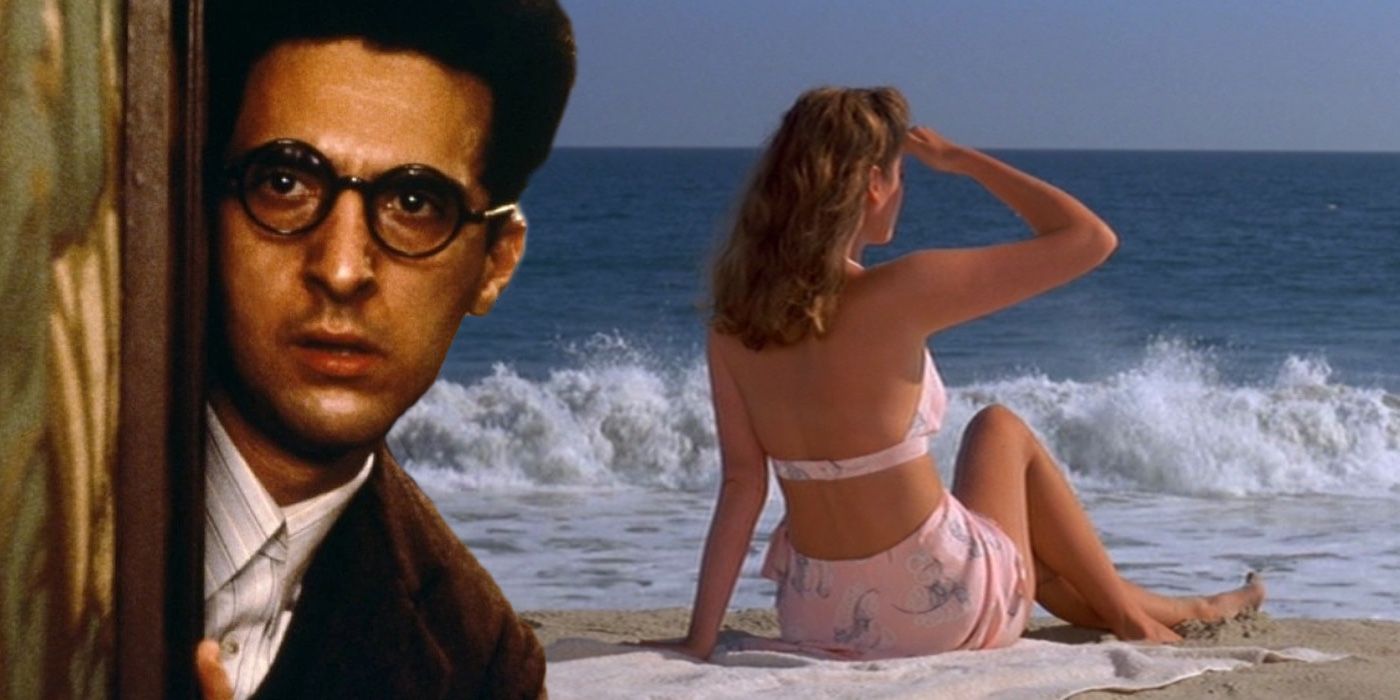
Related
Barton Fink Ending, Explained
Though it won several major awards, Barton Fink was one of the Coen brothers’ most divisive films and its ending left a lot of questions.
What The No Country For Old Men Ending Means
Bell’s Tale Of Mortality Makes The Movie Relatable
The meaning behind the No Country for Old Men ending helps to understand the message of the entire movie. Rather than being a story about the cat-and-mouse game between Moss and Chigurh, it is the story of a man fighting to maintain a bit of the past that he understood and push back against the future that he does not understand. In that sense, it is a simple story of aging and Bell’s journey is accepting that it is inevitable.
Bell’s dreams at the end of the movie cement him as a man yearning for the past. Throughout the movie, Bell looks back on the days when things seemed simpler, lamenting how things have changed. Both his dreams hold onto that hopefulness of the past, specifically connected to his father. However, even in this regard, Bell seems to subconsciously be realizing that notion of the past is gone and never coming back. He remarks that he is older now than his father ever was so even within the dream the past is behind him.
Before the final scene, Bell visits his uncle Ellis who questions his decision to retire. When Bell states that he feels “overmatched”, Ellis recounts a story about how his uncle was killed in 1909, shot dead on his front porch by strangers for no particular reason. Ellis then reminds him that he can’t stop what is coming and the future is as unrelenting as Chigurh. While No Country for Old Men lacks closure in the eyes of many audiences, Bell’s final line signifies his accepting that the past is not something he can recapture and realizing his own mortality.
How The No Country For Old Men Ending Was Received
Most Reviews For The Movie Were Positive
Critical reviews for No Country For Old Men were overwhelmingly positive as a whole. The movie holds a 92% on Rotten Tomatoes and a 92 on Metacritic. Time even named it one of their best films of its release year. The Oscar nominations make it clear the film community lauded the movie as well. All of that, however, does not mean that the ending of the movie itself wasn’t divisive.
Many audience members saw the killing of characters off screen before the discussion of a dream and a fade to black to be anticlimactic. Joshua Meyer for /Film looked back on his experience viewing the movie 10 years after seeing it, calling the ending “powerful,” but remembering someone in the audience in front of him questioning, “that’s it?” aloud.
Meyer reflected that fans might have been tricked into thinking they were seeing a straightforward thriller, commenting:
…the film reveals itself to be a haunting, literate rumination on mortality, something richer and far more meaningful than the simple chase thriller you thought you were watching.
That division is still reflected in Reddit threads discussing the movie years later as well. While some film enthusiasts see the movie as “amazing” but with a “terrible ending,” others see the dissatisfaction in the end as intentional. The movie offers up commentary on death being unyielding and a part of life. Some believed the ending too abrupt, while others believed it worked perfectly for the movie.
Even over 15 years later, the No Country For Old Men ending continues to divide those who love the movie and those seeing it for the first time.



